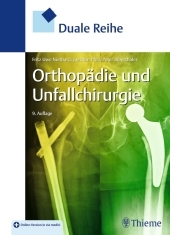
-
20% KEDVEZMÉNY?
- A kedvezmény csak az 'Értesítés a kedvenc témákról' hírlevelünk címzettjeinek rendeléseire érvényes.
- Kiadói listaár GBP 19.99
-
9 550 Ft (9 095 Ft + 5% áfa)
Az ár azért becsült, mert a rendelés pillanatában nem lehet pontosan tudni, hogy a beérkezéskor milyen lesz a forint árfolyama az adott termék eredeti devizájához képest. Ha a forint romlana, kissé többet, ha javulna, kissé kevesebbet kell majd fizetnie.
- Kedvezmény(ek) 20% (cc. 1 910 Ft off)
- Kedvezményes ár 7 640 Ft (7 276 Ft + 5% áfa)
Iratkozzon fel most és részesüljön kedvezőbb árainkból!
Feliratkozom
9 550 Ft

Beszerezhetőség
Becsült beszerzési idő: A Prosperónál jelenleg nincsen raktáron, de a kiadónál igen. Beszerzés kb. 3-5 hét..
A Prosperónál jelenleg nincsen raktáron.
Why don't you give exact delivery time?
A beszerzés időigényét az eddigi tapasztalatokra alapozva adjuk meg. Azért becsült, mert a terméket külföldről hozzuk be, így a kiadó kiszolgálásának pillanatnyi gyorsaságától is függ. A megadottnál gyorsabb és lassabb szállítás is elképzelhető, de mindent megteszünk, hogy Ön a lehető leghamarabb jusson hozzá a termékhez.
A termék adatai:
- Kiadó Bloomsbury Academic
- Megjelenés dátuma 2023. március 23.
- Kötetek száma Paperback
- ISBN 9798765100370
- Kötéstípus Puhakötés
- Terjedelem200 oldal
- Méret 214x138x16 mm
- Súly 280 g
- Nyelv angol 447
Kategóriák
Hosszú leírás:
While his memory languished under Nazi censorship, Franz Kafka covertly circulated through occupied France and soon emerged as a cultural icon, read by the most influential intellectuals of the time as a prophet of the rampant bureaucracy, totalitarian oppression, and absurdity that branded the twentieth century. In tracing the history of Kafka's reception in postwar France, John T. Hamilton explores how the work of a German-Jewish writer from Prague became a modern classic capable of addressing universal themes of the human condition.
Hamilton also considers how Kafka's unique literary corpus came to stimulate reflection in diverse movements, critical approaches, and philosophical schools, from surrealism and existentialism through psychoanalysis, phenomenology, and structuralism to Marxism, deconstruction, and feminism. The story of Kafka's afterlife in Paris thus furnishes a key chapter in the unfolding of French theory, which continues to guide how we read literature and understand its relationship to the world.
Tartalomjegyzék:
Abbreviations
I. Gradus ad Parnassum
The Writer and the Author in Theory · Through a Glass, darkly · From the Louvre to the Louvre · An Improbable Apparition · A Second Life
II. Metamorphoses
Naturalization Papers · Amid Intimacy and Exoticism · Universal Man · Dreams, Rivers, Snow · Translative Decisions · Bifurcations
III. Trials
Paratexts · The Adventurer · The Saint · A Certain Plume · Extremism · Non liquet
IV. Contingencies
Preoccupations · Nothing but Nothing · Seasickness on Land · Phantom War · Homo absurdus · Impossible Hope · Objective Style
V. Judgments
Upside Down, Right Side Up · Disengagement · Incendiaries · The Child · The Author in Theater
VI. Labyrinths
Signs of Change · The New New · Rhizomes · Primal Scenes · Derrida's Pharmacy
Bibliography
Index












